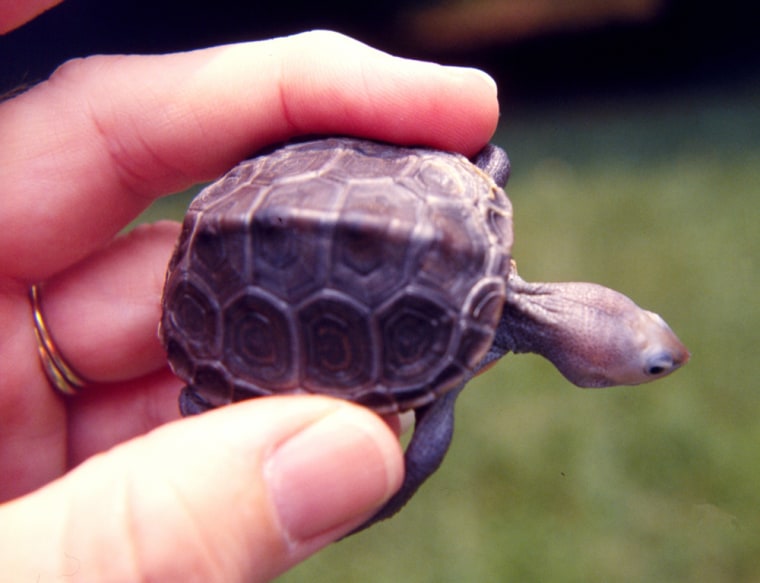The diamondback terrapin, a turtle species that lives on the East Coast, is under siege from Asian gourmets and American developers, but now Maryland officials and lawmakers are coming to its rescue.
Scientists in the Maryland Department of Natural Resources this week proposed to ban capturing the reptile from the Chesapeake Bay, where thousands are snatched every year destined for China and other Asian countries where they are commonly made into soup.
The moratorium, expected to take effect from June 18, would ban the terrapin harvest indefinitely and help to reverse a predicted continuing decline in its population, said officials.
Separately, Maryland lawmakers are also debating two bills that would also ban capturing the species, whose shell grows up to nine inches in length.
Around 11,000 terrapins were trapped in 2006 compared with 4,000 in the previous three years, but the real numbers are believed to be higher, said Gina Hunt, assistant director of the Fisheries Service in Maryland's Department of Natural Resources.
The species, which is named for the diamond pattern on top of its shell, is sensitive to small mortality increases because it takes between eight and 13 years for them to reach sexual maturity, and they only lay around 40 eggs a year, said Willem Roosenburg, a biology professor at Ohio University.
But the moratorium alone will not ensure the turtle's future, Hunt said.
Loss of habitat from coastal development, including the elimination of beaches where terrapins lay their eggs, contribute to its decline.
They are also threatened by predators such as raccoons, which prevent about 95 percent of young terrapins from reaching breeding maturity, as well as recreational crabbers, who unintentionally catch them in crab traps where they are unable to breathe.
Hunt said the proposed moratorium was a "first step" in a series designed to save the terrapin.
"It's not just about the commercial harvest," said Hunt. "Whether or not you stop shipments to Asia, the terrapin is still in trouble."
